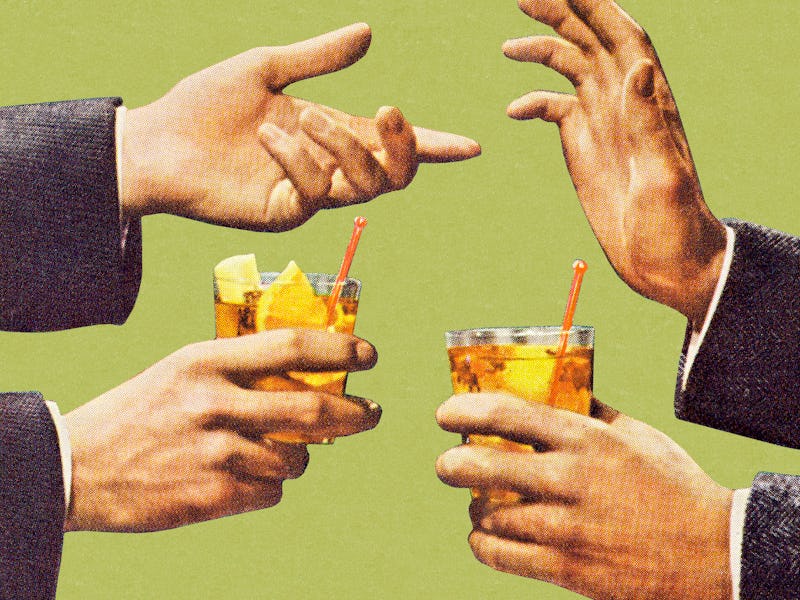Quitting casual drinking affects men and women in different ways
Alcohol can take a toll on mental health -- but the exact effects may depend on your sex.

When a person drinks alcohol, the substance reaches the brain in five minutes and changes behavior within 10. Light drinking is associated with euphoria and heavy drinking results in a stupor. It’s well-established that drinking changes the brain in the long-run. What’s less understood is what happens when you get sober.
However, a study released in July 2019 in the Canadian Medical Association Journal does provide some insight. The research focuses on the effects of moderate drinking, defined as 14 drinks or less per week for men, and seven drinks or less per week for women.
Quitting alcohol can change the state of your mental health, the study reveals — but the results are different depending on whether you’re a man or a woman.
This is #22 on Inverse’s list of the 25 Most WTF science stories of 2019.
Over a four-year period, scientists evaluated how changing drinking habits shifted the mental and physical well-being of 10,385 people in China. They then compared those results to data from a representative survey of 31,079 Americans.
People who never drank reported the highest levels of mental well-being. Meanwhile, across the Chinese and American sample, women who quit drinking approached that same level of mental well-being by the end of the four-year period. But for men, there was very little change in the state of their mental health across the four year period, even if they quit moderate drinking and got sober.
Quitting casual drinking improved women's mental health.
It’s not clear why quitting led only women to experience a positive change in mental well-being. But study co-author Herbert Pang told Inverse at the time that because the findings were the same across Chinese and American populations, it’s fair to say that the results are a product of drinking habits, not cultural factors.
It’s possible that “alcohol cessation may reduce stressful life events, such as conflict within a family, difficulties in employment, and legal troubles, resulting in improved mental health,” Pang said. But co-author Mary Schooling said that any explanation for the sex difference is speculative.
“It could be that men and women react differently to giving up alcohol, because of physiological differences,” Schooling said. “Alternatively, alcohol use is a complex activity that may represent more than intake of alcohol. For example, it could be an indicator of active social life in men, but of a guilty pleasure in women.”
As 2019 draws to a close, Inverse is counting down the 25 science stories from this year that made us say “WTF.” Some are incredible, some are icky, and some are just plain strange. This has been #22. Read the original article here.